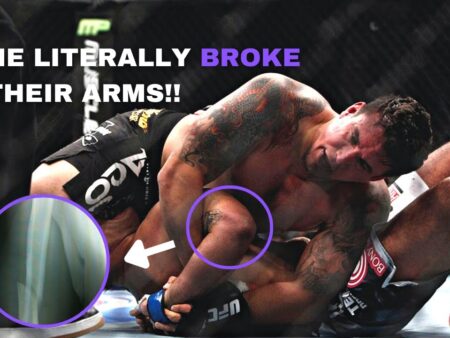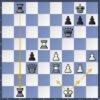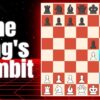The world of mixed martial arts thrives on fierce competition, raw athleticism, and the unyielding pursuit of victory. Yet, beneath the veneer of combat and championship dreams, the integrity of the sport is occasionally tested. UFC 320, an event poised for electrifying title clashes, found itself embroiled in a familiar, yet particularly contentious, controversy: a weigh-in gone awry, sparking accusations that cut far deeper than a simple numerical misstep.
The Scale of Controversy: A Weight Miss with Malice?
The spotlight of UFC 320 quickly shifted from the anticipated main event to the women`s bantamweight bout between No. 5-ranked Macy Chiasson and her opponent, Yana Santos. Expectations were high, with both fighters aiming to cement their title ambitions in the competitive 135-pound division. However, Friday`s weigh-ins delivered an unexpected blow: Chiasson tipped the scales 1.5 pounds over the limit.
While a weight miss is unfortunately not unheard of in MMA, the aftermath of this particular incident rapidly escalated into a full-blown ethical debate. Yana Santos, clearly incensed, took to social media not just to express her displeasure, but to level a severe accusation. This wasn`t, in Santos`s view, an innocent oversight. She claimed Chiasson was offered an additional hour to shed the excess weight by the commission — a standard professional courtesy — but allegedly refused the opportunity outright.
“Imagine signing a contract and showing up overweight AGAIN. Some of us respect the grind. Others disrespect the sport. See you Saturday.”
Santos didn`t stop there, doubling down on her claims:
“The worst part? The commission offered her an extra hour to make weight. She REFUSED. Why? Because she wants an unfair advantage. This isn’t just unprofessional—it’s straight-up dirty.”
If true, this transforms a technical violation into a calculated strategic maneuver. It suggests a deliberate choice to enter the Octagon with a physical advantage, potentially at the expense of fair play and fighter safety.
The Unseen Battle: Consequences Beyond the Scorecards
For Yana Santos, preparing for a fight involves meticulous discipline: an intense training camp, stringent diet, and the arduous process of cutting weight to meet the contracted limit. When an opponent misses weight, it not only impacts the purse (a percentage of the over-weight fighter`s pay is typically forfeited to the opponent) but also the tactical landscape of the fight. Santos trained for a specific version of her opponent, a fighter at a certain weight. Facing a heavier opponent, especially one who allegedly deliberately chose to be so, creates an imbalance that can be mentally and physically taxing.
This incident also casts a shadow over the sport`s unwritten code of honor. While the pursuit of victory is paramount, it is generally understood to be within the confines of established rules and a shared commitment to fair competition. The accusation of refusing an extra hour touches a raw nerve, implying a blatant disregard for these principles and, perhaps, for the well-being of a fellow athlete.
A Call for Stricter Sanctions: When is Enough, Enough?
The controversy quickly drew comments from other figures in the MMA community. Thiago Santos, Yana`s husband and a former UFC title challenger himself, echoed his wife`s frustration, calling for more severe repercussions for repeat offenders:
“Unbelievable how some people are not professional in this sport. It’s Yana’s 4th opponent that didn’t make the weight. Some (stronger) punishments (have) to be made.”
Thiago Santos’s statement highlights a systemic issue. Current penalties, often a 20-30% forfeiture of the fight purse, are intended as deterrents. However, when fighters repeatedly miss weight, questions arise about the efficacy of these sanctions. Is the financial penalty significant enough to outweigh the perceived competitive advantage of being heavier? The debate over stronger punishments, including potential fight cancellations, points deductions before the fight, or temporary suspensions, is a perennial one, intensified by incidents like this.
The Ethics of the Edge: A Deeper Look at Combat Sports
Combat sports, by their very nature, are a dance on the edge. Athletes push their bodies to extremes, seeking any legitimate advantage. But where does the line between a legitimate advantage and an unethical one truly lie? The meticulous science of weight cutting is a testament to the lengths fighters will go to compete in their optimal weight class. Yet, when that system is allegedly circumvented by a deliberate choice to ignore an opportunity to rectify an error, it raises profound questions about the spirit of competition.
This UFC 320 weigh-in drama serves as a potent reminder that the battles fought outside the cage – against the scale, against one`s own discipline, and against the temptation of an unfair edge – can be just as intense, and sometimes even more damaging, than those fought within it. As the dust settles on this particular controversy, the conversation about professionalism, ethical conduct, and the adequacy of current regulations in MMA will undoubtedly continue, shaping the integrity of the sport for years to come.
Whether the accusations are fully substantiated, the incident underscores the fragile balance between ambition and ethics in professional fighting. It`s a stark reminder that while physical prowess wins fights, respect for the rules and for one`s opponent ultimately defines a champion`s legacy.











